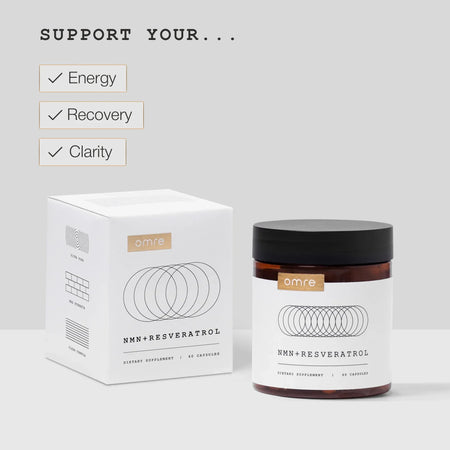In the world of skincare, ingredients play a crucial role in determining the efficacy of products. Among these ingredients, resveratrol and retinol are frequently discussed. Both are known for their potential benefits for skin health, but they serve different purposes and come from different sources. This article aims to clarify the distinction between resveratrol and retinol, helping you understand whether resveratrol can be classified as a retinol.
Is Resveratrol a Retinol?
No, resveratrol is not a retinol. While both ingredients are celebrated for their anti-aging properties, they belong to different chemical classes and have different mechanisms of action. Retinol is a form of vitamin A, known for its ability to promote cell turnover, reduce fine lines, and improve skin texture. On the other hand, resveratrol is a polyphenolic compound found in red wine, grapes, and certain berries, recognized for its antioxidant properties and ability to combat oxidative stress.
Understanding Retinol
Retinol is a derivative of vitamin A, a crucial nutrient for skin health. It is widely used in skincare products for its proven effectiveness in treating various skin concerns, including acne, uneven skin tone, and signs of aging. Retinol works by promoting cell turnover, which helps to shed dead skin cells and stimulate the production of new, healthy cells. This process can lead to smoother skin texture, reduced wrinkles, and a more radiant complexion.
The Benefits of Retinol
Some key benefits of retinol include:
- Reduces Fine Lines and Wrinkles: By encouraging cell turnover, retinol can help diminish the appearance of fine lines and wrinkles.
- Improves Skin Texture: Regular use of retinol can lead to smoother, more even skin texture.
- Fights Acne: Retinol helps unclog pores, making it an effective treatment for acne-prone skin.
- Brightens Skin Tone: Retinol can help fade dark spots and hyperpigmentation, leading to a more uniform skin tone.
Understanding Resveratrol
Resveratrol is a natural antioxidant compound that is primarily found in the skin of red grapes, berries, and nuts. It is best known for its role in promoting heart health, but it has also gained popularity in the skincare industry due to its anti-aging properties. Resveratrol works by neutralizing free radicals, which are unstable molecules that can cause oxidative stress and damage cells.
The Benefits of Resveratrol
Some notable benefits of resveratrol include:
- Powerful Antioxidant: Resveratrol protects the skin from environmental stressors, such as pollution and UV radiation.
- Anti-Inflammatory Properties: It can help reduce inflammation, making it beneficial for sensitive or irritated skin.
- Supports Skin Firmness: Resveratrol may promote collagen production, contributing to firmer, more youthful-looking skin.
- Brightening Effect: Similar to retinol, resveratrol can help improve skin tone and reduce the appearance of dark spots.
How Do Resveratrol and Retinol Work Together?
While resveratrol and retinol are not the same, they can complement each other when incorporated into a skincare routine. Using both ingredients can provide a multifaceted approach to skincare, addressing various concerns simultaneously. Retinol can enhance cell turnover and target signs of aging, while resveratrol can provide antioxidant protection and soothe the skin.
How to Use Resveratrol and Retinol in Your Skincare Routine
When integrating both ingredients into your regimen, it is essential to consider the following tips:
- Start Slowly: If you are new to retinol, begin with a lower concentration and gradually increase usage to prevent irritation.
- Layering: Apply your retinol product first, followed by a moisturizer containing resveratrol. This method allows the retinol to penetrate effectively while the resveratrol provides additional hydration and protection.
- Sun Protection: Always use sunscreen during the day, especially when using retinol, as it can increase sun sensitivity.
- Consult a Dermatologist: If you have sensitive skin or specific skin concerns, it may be beneficial to consult with a dermatologist before starting a new skincare regimen.
Conclusion
In summary, resveratrol is not a retinol; they are two distinct ingredients with unique benefits for the skin. While retinol is a vitamin A derivative known for its effectiveness in treating aging and acne, resveratrol is a powerful antioxidant that offers protective and soothing properties. By understanding the differences and how to use them together, you can create a comprehensive skincare routine that addresses various concerns, leaving your skin looking youthful and radiant.
Stay Sharp, Stay Energized, Stay Ahead
Aging doesn’t have to slow you down. NMN + Resveratrol is your key to sustained energy, sharper focus, and long-term vitality. Whether you're a high performer pushing boundaries, a biohacker optimizing every aspect of life, or a parent looking to keep up with the demands of daily life, this powerful combination fuels your body at the cellular level.
Backed by science and trusted by those who refuse to settle for average aging, NMN + Resveratrol helps you stay ahead—today, tomorrow, and for years to come.
Experience the benefits for yourself. Start your journey to better aging now!
Try NMN + Resveratrol Today!
NMN + RESVERATROL
Cellular NAD+ booster with ultra‑pure NMN and Resveratrol, at research‑backed doses.*
Read more:


